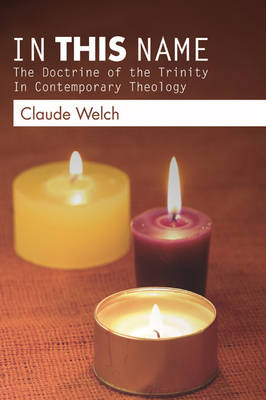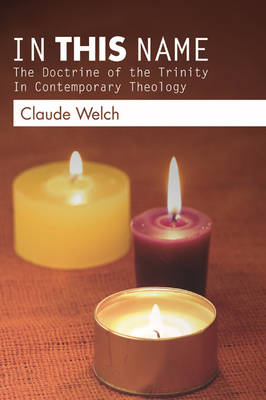
- Afhalen na 1 uur in een winkel met voorraad
- Gratis thuislevering in België vanaf € 30
- Ruim aanbod met 7 miljoen producten
- Afhalen na 1 uur in een winkel met voorraad
- Gratis thuislevering in België vanaf € 30
- Ruim aanbod met 7 miljoen producten
Zoeken
Omschrijving
In the analysis of contemporary patterns of thought, which comprises Parts II and III of this book, I have had always in mind four main problems. First, the distinguishing of the principal types of attitudes toward the doctrine of the Trinity. Second, the theological 'interest' or 'motivation' of these attitudes. . . . Third, the relation of the various restatements to 'classical' Christian views. . . . Fourth, the value and viability of the recent interpretations in terms of their relevance and meaning for contemprary religious problems and thought. My own constructive suggestions regarding the basis and significance of the trinitarian conception, and the systematic reformulation of the doctrine, are drawn together in Part IV. --from the Preface Claude Welch is Dean Emeritus and Professor of Historical Theology at the Graduate Theological Union, Berkeley. He is also the author of In 'Protestant Thought in the Nineteenth Century' (2 vols.) and 'The Reality of the Church.'
Specificaties
Betrokkenen
- Auteur(s):
- Uitgeverij:
Inhoud
- Aantal bladzijden:
- 320
- Taal:
- Engels
Eigenschappen
- Productcode (EAN):
- 9781597524186
- Verschijningsdatum:
- 1/10/2005
- Uitvoering:
- Paperback
- Formaat:
- Trade paperback (VS)
- Afmetingen:
- 171 mm x 216 mm
- Gewicht:
- 399 g

Alleen bij Standaard Boekhandel
+ 102 punten op je klantenkaart van Standaard Boekhandel
Beoordelingen
We publiceren alleen reviews die voldoen aan de voorwaarden voor reviews. Bekijk onze voorwaarden voor reviews.











